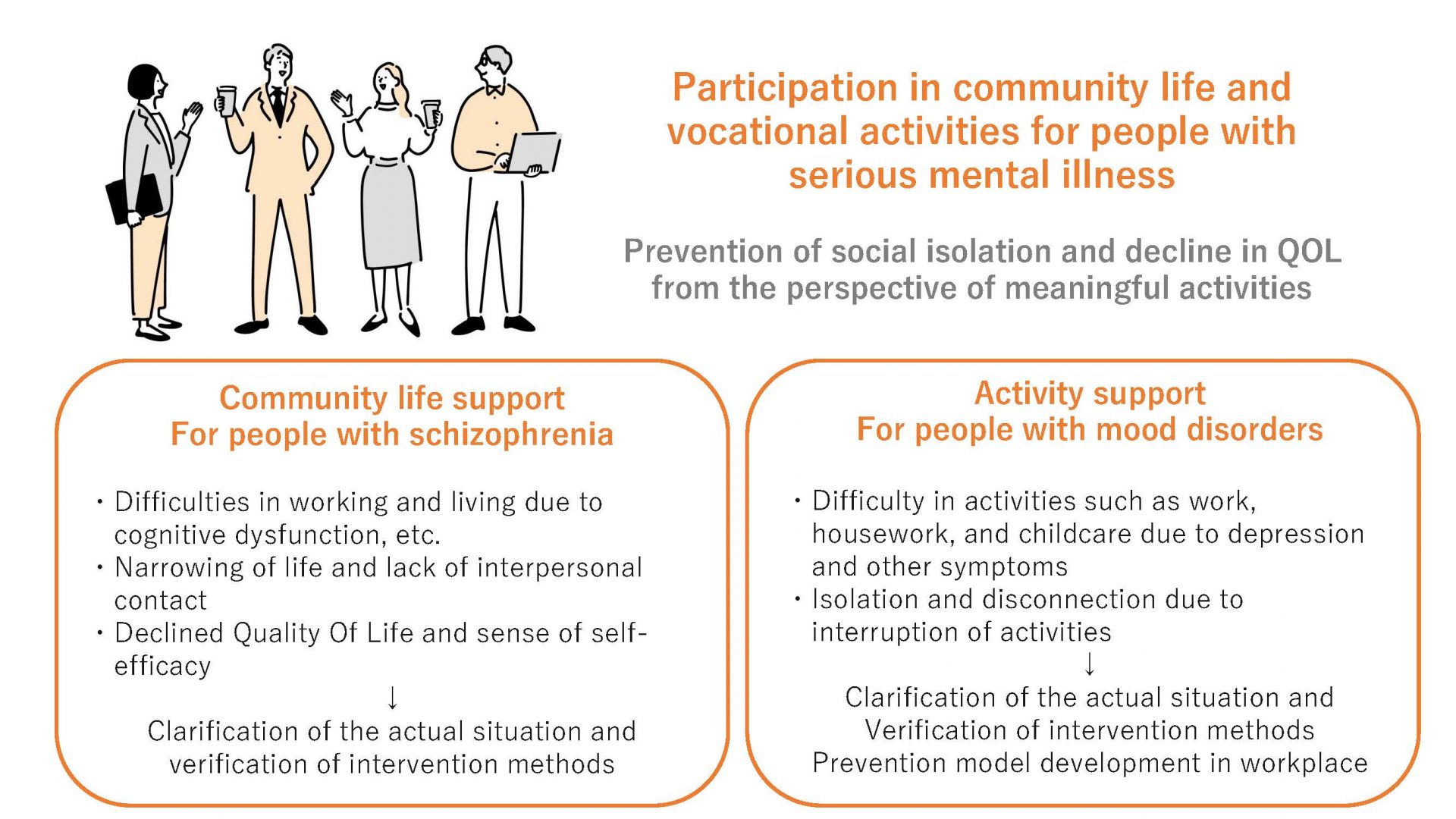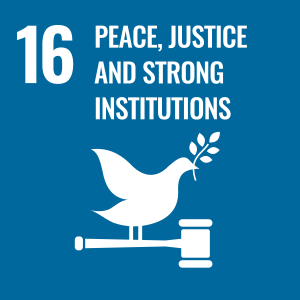Rehabilitation
Occupational Therapy
Psychiatry
Welfare

HOSHINO Aiko
Starting year 2023
Nagoya University
Department of Integrated Health Sciences, Graduate School of Medicine
Lecturer
Research fields
Research Interests
Serious Mental Illness(SMI)
Occupational Therapy
Rehabilitation
Depression
Schizophrenia
Professional Memberships
World Federation of Occupational Therapist(WFOT)
Japanese Association of Occupational Therapists(JAOT)
Japanese Society of Mood Disorders
Japan Society for Occupational health(JSOH)
Main research topics
My research focuses on the participation of people with Serious Mental Illness (SMI), such as schizophrenia and mood disorders, in community life and employment. With a primary focus on preventing isolation and deterioration of quality of life (QOL) from participating in the life and activities that the individual desires, my research is conducted from two main perspectives.
The first is support for community life and social participation for people with schizophrenia. The symptoms and disabilities of schizophrenia cause difficulties in living, working, and continuing to live in the community. As a result, people with schizophrenia tend to have limited opportunities for social participation and a narrow sense of life, activities, and relationships, which significantly reduces their quality of life and sense of independence. Additionally, most of them experience the social isolation. In previous studies, we have investigated the actual conditions of life in the community. We are also currently conducting an intervention study using an intervention method developed in Canada to change the patterned, passive living of people with schizophrenia.
The second perspective is activity support for depression and other mood disorders. Specifically, support for returning to work and support for domestic work such as housework and childcare. Depression and other symptoms often make it difficult to continue daily life. In addition, these difficulties in continuing with life can easily lead to the disruption of various relationships, often leading to isolation. In previous studies, we have investigated the actual conditions, factors related to return to work or activity, and intervention effects. Furthermore, from the viewpoint of primary prevention at companies, we are currently aiming to formulate a prevention model using medical checkup data from companies.





Representative papers
Hoshino Aiko, Asakura Tatsumi, Cho Kilchoon, Murata Natsumi, Kogata Tomohiro, Kawamura Masashi, Kito Aki, Kato Urara, “Preliminary study of time estimation of daily activities in patients with chronic schizophrenia by questionnaire survey”, British Journal of Occupational Therapy, Volume 83, Issue, 752-760,2020.
Ichiro Kutsuna, Aiko Hoshino(Corresponding Author), Ami Morisugi, Yukari Mori, Aki Shirato, Mirai Takeda, Hikari Isaji, Mami Suwa, “Relationship between emotional words in electronic medical records and leave periods of users of a return-to-work program with depression”, British Journal of Occupational Therapy, Volume 85, Issue12, 2022, https://doi.org/10.1177/03080226221107773
Research URL
researchmap https://researchmap.jp/read0142700/
Occupational Therapy, School of Health Sciences, Nagoya University Webesite https://www.met.nagoya-u.ac.jp/OT/sh/staff/8.html
Global issues to be solved through this project
Factors and social structure associated with social isolation of people with Severe Mental Illness (SMI)
The social isolation of people with Serious Mental Illness (SMI), is a common problem worldwide. With the development of psychiatric treatment and medication, most people with SMI are now living in the community. However, the rate of social isolation among people with SMI is extremely high compared to the general population due to their inability to build relationships through employment and activities that make life worth living (Jenkins, 2022), and is highly associated with depression and suicide (Dell, 2019). In Japan, however, few effective strategies have been proposed to approach social isolation in either people with SMI or the general population.
In this study, an international team will be formed to investigate not only the medical perspective, but also the macro level of social structure, disability policies, and cultural aspects from an interdisciplinary perspective. Based on the results, we will develop approach methods and models for this issue, with a view to their social implementation.
Interview
No interview

